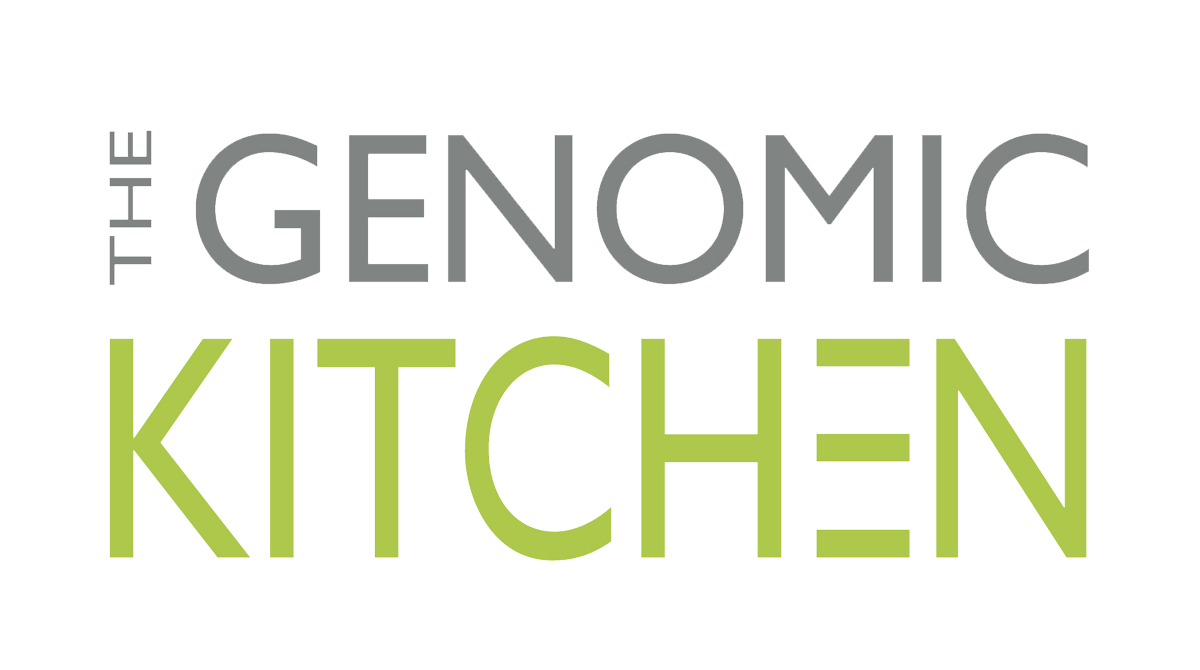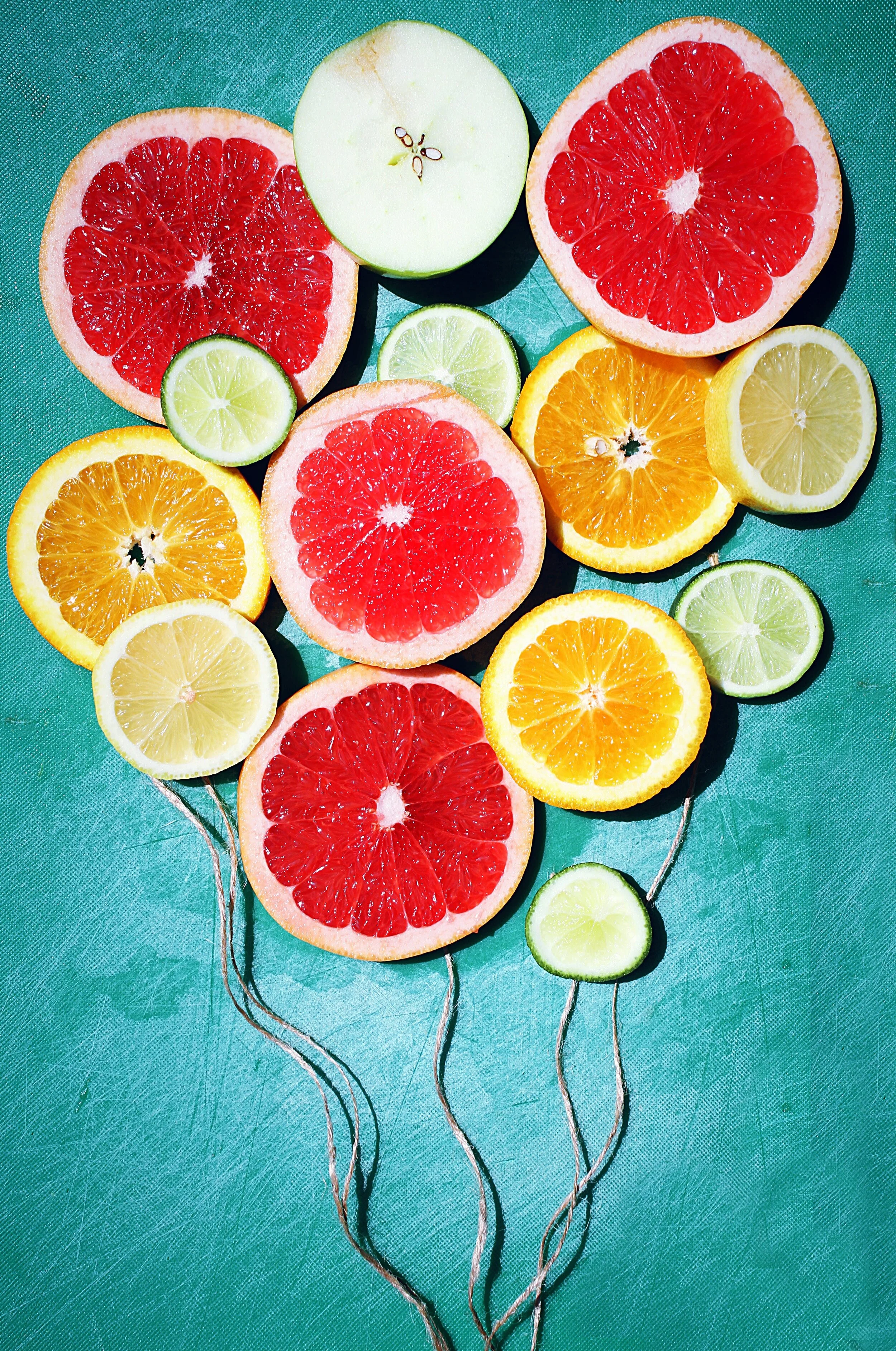Wondering “What foods should I eat?” The answer is different for everyone!
/It seems like a simple question: What foods should I eat? If you think there is one clear, concise answer, there isn't. This question has spurred centuries of research by scientists, tens of thousands of books and “diets” that guide your understanding, a whole diet and supplement industry and untold numbers of food products and meal ideas. All of these different approaches are designed to optimize your health through food.
I'll share the best way you can truly know what foods you should eat and I'll share mine, too. Before that, let's start with the role that foods and nutrients play in the body.
Why Everyone Needs to Eat Food
Simply put, we need to eat because we need food to sustain us. Sustenance comes in the form of food and liquid (preferably water). Food provides energy and nutrients. Water provides the lubrication the human body needs to function. Everybody needs to eat food, but not everybody should eat the same foods. This is especially true if you have underlying health concerns (like cancer) or certain genetic profiles (like the inability to produce enough vitamin D).
Throughout history, humans have tried to prove that we can survive without food. Information based on hunger strikes and famines prove that it is only possible to go 1-2 months without eating. Given that most of us understand that food and water are essential for life, fundamental questions arise about their role. Why do we need food and water to survive? What exactly do food and water do in the body? Are there particular foods that work better for me than other people?
Let’s answer your question: What foods should I eat?
Why Eat? Why Drink?
Let’s tackle these by looking first at water and then food.
Water
We all agree that if you don’t eat or hydrate, you die. Between the two, you need water more than food. Water is the fluid or lubrication that allows your blood to circulate and distribute nutrients. It is a medium to remove toxic compounds and byproducts of metabolism (AKA eating and digesting) from your body. In short: poor blood flow and a growing toxic waste in your body mean a very short life.
Food
Eating provides the body with the energy it needs for all functions. These functions include breathing, moving, eating, blinking, storing energy for later use, etc.
Think of food as a repository of calories (energy) and assorted nutrients like protein, fat, vitamins, minerals and bioactives. Calories describe the amount of energy that can be extracted and used by your body. Through a dazzling system of biology (our digestive system), these complex nutrients are broken down into energy units called ATP (Adenosine Triphosphate). I call ATP the energy “currency” because it fuels every biological cycle and system in the body.
Food is More Than Energy
Food is more than just an energy source, it’s also rich in vitamins and minerals.
Here’s a nutrition teamwork analogy. If you’re building a house, you need cement for the foundation and wood (or sometimes steel) for the frame and rafters. Think of these materials as your protein, fat and carbs. To pour the cement, frame out the house, do the drywall, plumbing, electricity and cabinetry, you need workers. No workers, no house. It’s the same with vitamins and minerals. They are the essential construction site workers who put the different elements of the house together.
In the body, proteins, fats and carbohydrates cannot do their job without vitamins and minerals. Different vitamins and minerals are needed to power the jobs (biochemical cycles) of your body.
Does Anyone Know WHAT Foods To Eat?
If you want to get into a long discussion, ask people what foods they should eat for their best health. Take a scroll through social media posts to see what I mean. You quickly see that eating is both political and emotional these days. Here are a couple of examples.
Vegan
Take the plant versus meat discussion, for example. The vegan position is to eat 100% plants, excluding any form of animal protein. This is often (but not always) an ethically informed choice with its roots in the inhumane treatment of animals. Even if those animals are ethically grass-raised and finished on a small family farm.
Keto
How about the keto versus carbs discussion? This is another opinion-driven heated conversation where a truce is rarely called.
Other food debates include
Intermittent fasting versus meals with small snacks
The “my meal plan solution” versus yours
The “six-week solution” versus the next one on the bookshelf
It is a quagmire where the nutrition noise is constant, and you are left with no clear guidance. That is why your question about what foods you should eat is so important and relevant. This is especially true if you are at risk for a serious disease such as cancer.
Who Knows the Right Foods to Eat?
Starting with the vegan position, they are 100% right in their advocacy of plants. Plants provide perhaps the richest sources of nutrients and bioactives on the planet. On the other hand, grass-fed protein advocates are also right in that the derived meat and dairy products (and select seafood) are excellent sources of critical nutrients. These include the ready-to-use, active forms of omega-3 fatty acids: EPA and DHA.
Plant-based omega-3 is alpha-linolenic acid (ALA) which is not very active (user-friendly!) in the human body. Active forms are EPA (eicosapentanoic acid) and DHA (docosahexanoic acid).
Here’s where the sciences of nutrigenetics and nutrigenomics can help discover what foods YOU should eat. Some people may have a gene variant that does not allow them to efficiently convert plant-based ALA into the “ready-to-use” EPA and DHA forms. In this case, if you eat only plants, you can undermine your health no matter how many plants you eat.
This also goes for many chronic diseases, like cancer. Not all foods or diets work for everyone with the same diagnosis.
Do You KNOW What Foods You Should Eat If You Have Cancer?
The keto peeps are right in that a rich plant-centric diet with quality fat sources in lieu of carbs does work for some people . . . and very well. For others, a high-fat low-carb (HFLC) version of the ketogenic diet is frankly dangerous. Nowhere is this clearer than when someone is severely ill with cancer. Taking on one diet may help some patients, but harm others . There are ongoing studies to look at how diet affects the risks for diseases like cancer and how they may interact with cancer cells and treatments.
There is cutting edge research combining diet and metabolism alongside cancer therapies . Researchers are looking at the differences between cancer cells and non-cancer cells and how the body’s metabolic state affects them differently. Some ketogenic approaches influence the body’s metabolism to work in some cases. But in others, it can promote more tumors.
As you now know, some foods, nutrients and diets may help some people with certain types of cancers. But there is no “one size fits all” approach that benefits everyone the same way.
Amanda’s Perspective
As a clinician, when I look at your health through the lens of your genes, I don’t take sides in the keto or any other dietary debate. I look purely at the genes in front of me. It is your genes that tells me how to support you through the nutrients YOU need. And when it comes to a higher fat approach, if you have a deficiency in carnitine, which helps transport fat into your energy production factory (your mitochondria), then you’ll have some challenges with keto. You cannot fool your biochemistry, but you can support its efficiency.
Do You KNOW Which Foods You Should Eat If You Have Metabolic Syndrome?
Advocates of Intermittent Fasting (IF) are correct in that the body responds beautifully to extended periods without meals or snacks. This is why the first meal of the day is a “break fast.” If intermittent fasting interests you, I recommend you follow the work of Dr Satchidananda Panda at the Salk Institute. Or listen to him talk here.
Dr Panda has conducted extensive research on the role of IF in metabolic disorders (diabetes, heart disease and obesity). Much of his work centers on how IF can help reset the body’s natural clock (circadian rhythm). When our circadian rhythm is disturbed through shift work, late nights, stress and screen time, metabolic disorders often follow. This can result in diabetes, cardiovascular disease, and/or obesity.
Amanda’s Perspective
As with cancer, not everyone with metabolic syndrome should eat the same foods. Metabolic syndrome is an umbrella label that links together a host of health imbalances such as high blood pressure, glucose and lipid imbalances, and correlate with elevated risk for cardiovascular or cerebral disorders.
Genetics helps us understand where the inefficiencies are.
Laboratory data helps us validate and correct the inefficiencies.
Your food and lifestyle prescription for correcting your metabolic imbalances is different from the next person. Trust me on this.
How To Know What Foods YOU Should Eat
The foods YOU should eat goes far beyond general recommendations. And the only true answer to the question “What foods should I eat?” … lies in your genes.
Your genes Tell You WHAT You Should Eat . . . And WHY. Yes, genes determine your traits (blue eyes, curly hair, etc.), but they also determine how your body responds to different foods, such as less carbs and more fat, or more Vitamin D
Genes override any diet formulation or even ethical approach to eating. Genes simply don’t have a dog in the fight and they can’t express an opinion about this diet or that either. You are born with them and like it or not, they have the final say over which food is right for you!
Food and nutrition guidance in the USA is often based on Recommended Daily Intake (RDI) values. RDIs guide school meal composition, food labeling, menu nutrition information and even hospital meal plans. While the RDIs provide guidance on optimal nutrient intake every day, they are based on population studies and are not individualized. This means that many of us will do fine with these recommendations. But the rest of us need a different configuration…because our genes say so!
Some of the dietary trends such as Keto, Paleo and Intermittent Fasting actually have very relevant science to support them. But as you now know, while these individual approaches may work for many of people, they simply don’t for others.
Some folks drop weight like a rock, but their blood lipids like triglycerides or LDL cholesterol soar. This means that regardless of how good the testimonies are, YOUR body and THEIRS responds differently. I see this in my practice every day.
All this being said, many of us don’t have personal genomic information at hand, so what do you do? This is precisely why I created The Genomic Kitchen and share wisdom through our blog and newsletters. Read more about the foods that communicate with your genes in our ingredient toolbox here. And be sure to sign up for our newsletter.
And if you are ready to see YOU through the lens of YOUR genes and get clear answers on what foods YOU should eat, send us a note and let us show you around your genes.
If You Are Curious: Here Are The Foods My Genes Say I Should (And Should Not) Eat
Fats
My gene picture clearly shows that I don’t package saturated fat, transport it, store it or use it well . . . AT ALL. Less is best. It makes me an olive oil versus coconut oil gal. I use butter—here or there—but it is not my go-to fat anymore. For higher heat cooking, my go to is Avocado
Carbs
I have to be choosy with carbs. The way my gene picture plays out, I don’t handle a heavy load of carbs at one sitting. Many of us don’t. If we look at mathematics, public health guidance recommends a carbohydrate intake ranging from 45 – 65% of total caloric intake. I am at the 45% (or much less) level. Why? Because my gene bucket (as I call it) places me at higher risk for glucose intolerance and sluggish insulin production. I don’t need to eschew carbs. But I do need to shoot for the lower glycemic vegetables, berries and non-tropical fruit, along with legumes to make up the carb component of my diet. These collectively ease the burden on insulin to handle the carbohydrate load.
Vitamins and bioactives
My genes say that my body doesn’t produce or utilize vitamin D efficiently. I also don’t produce the active form of an antioxidant bioactive called ubiquinol (made from CoQ10). This means I’m not an efficient producer of antioxidants that help me fight inflammation. I take a vitamin D3/K2 supplement in a liquid form and at a higher concentration than the RDI to optimize my vitamin D levels. I take a ubiquinol supplement because I cannot produce it from CoQ10.
And that’s a little bit of my gene story and me!
References
MD Anderson Cancer Center. (2018, April 18). The keto diet and cancer: What patients should know. Retrieved from https://www.mdanderson.org/cancerwise/the-keto-diet-and-cancer--what-patients-should-know.h00-159223356.html
Medical News Today. (2020, March, 17). How long can you survive without food? Retrieved from https://www.medicalnewstoday.com/articles/how-long-can-you-go-without-food
Peter Attia. (2018, December 10). #32 – Siddhartha Mukherjee, M.D., Ph.D.: new frontiers in cancer therapy, medicine, and the writing process. Retrieved from https://peterattiamd.com/sidmukherjee/
Salk Institute for Biological Sciences (n.d.). Satchidananda Panda. Retrieved from https://www.salk.edu/scientist/satchidananda-panda/
Salk Institute YouTube Channel. (2014, December 2). Time-Restricted Eating May Reverse Diabetes & Obesity. Retrieved from https://www.youtube.com/watch?v=gEmTsmsXuUM&feature=youtu.be








